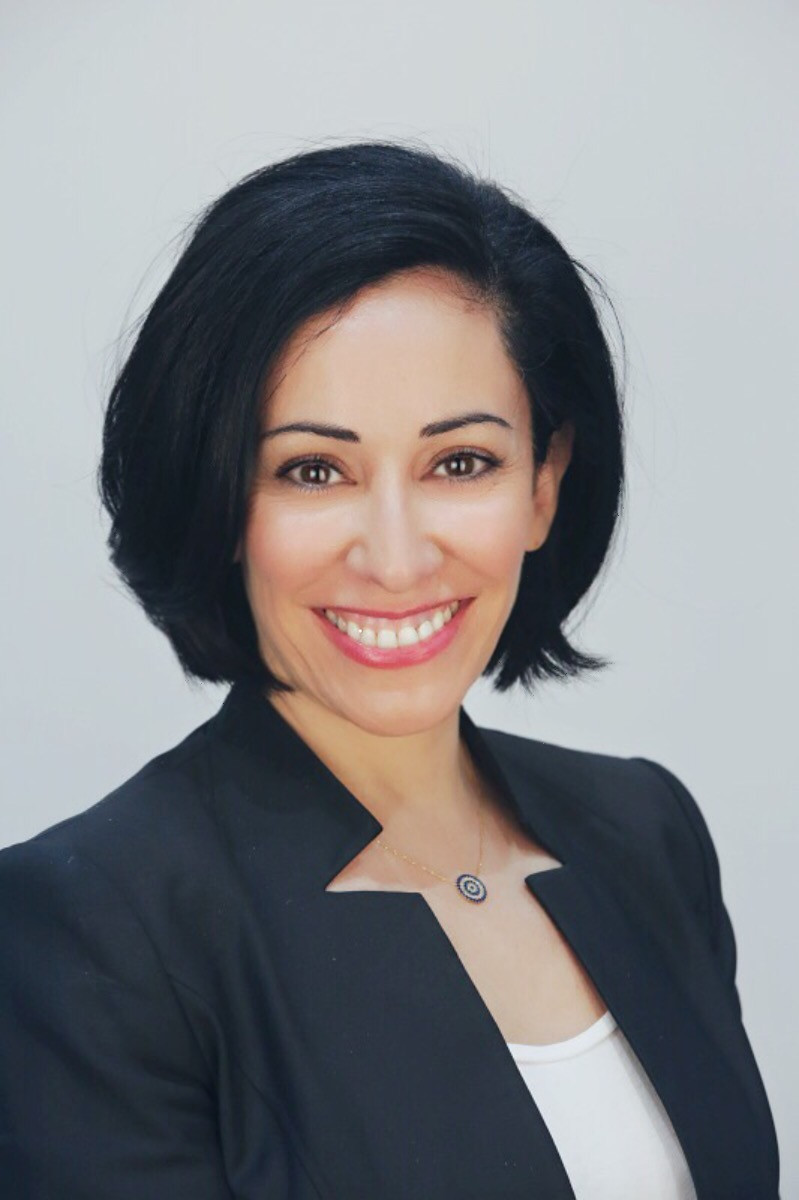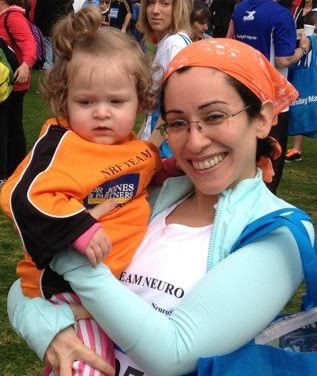Celebrating International Women's Day 2023 - Interview with Neurosurgeon Assoc Prof Amal Abou-Hamden
“Life is what you focus on”
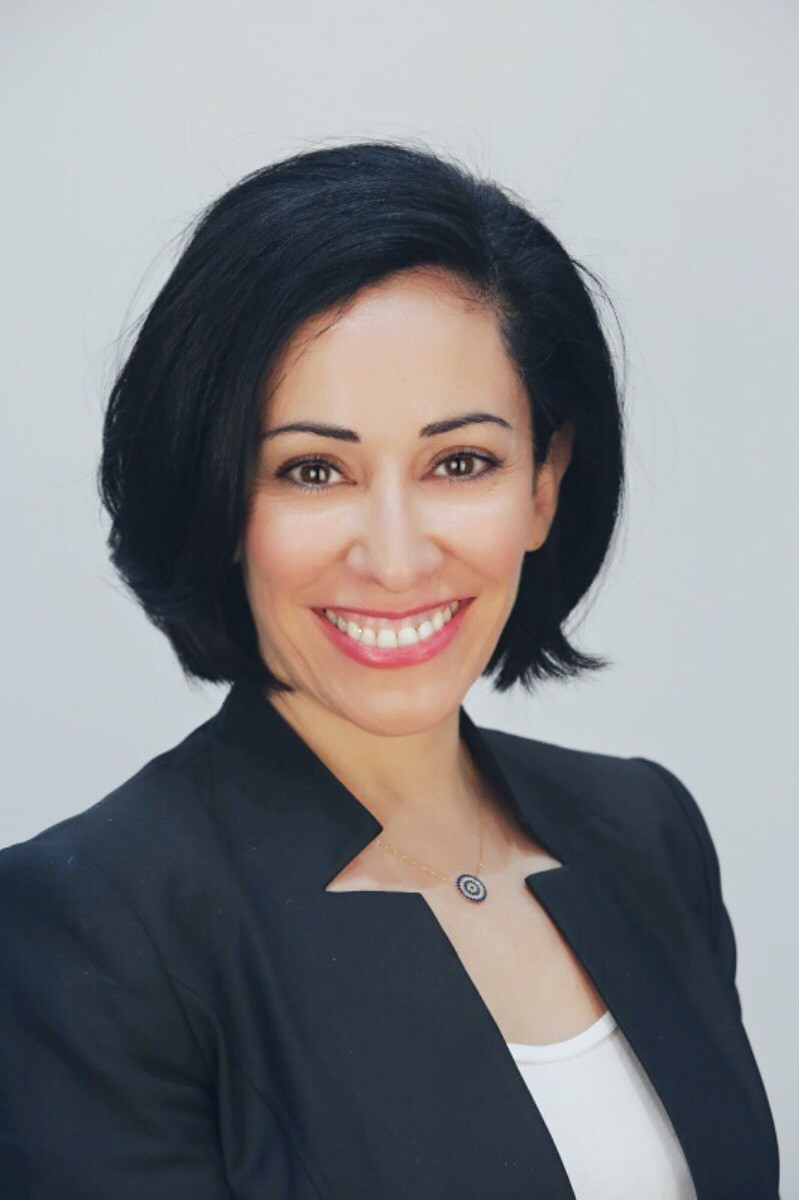
Amal Abou-Hamden was born in Beirut, Lebanon and migrated to Adelaide with her family in 1988 when she was in year 10 of high school. Most of her childhood had been spent in Lebanon whilst the civil war raged. She skipped the remainder of the school year in Australia and entered year 11 at a state school, Norwood High School. Consequently, she was 16 when she started medical school at the University of Adelaide. She obtained her FRACS in 2007 and completed 3 post-FRACS fellowships - at the Austin Hospital, Melbourne, in epilepsy surgery, The Hospital for Sick Children in Toronto in paediatric neurosurgery and a vascular neurosurgery fellowship at the Toronto Western Hospital.
After returning to Adelaide in 2010 she was appointed to the Royal Adelaide Hospital and the Women’s and Children’s Hospitals as a consultant with special interests in vascular neurosurgery, epilepsy surgery and paediatric neurosurgery. Amal is the Principal Supervisor of the Vascular Neurosurgery Fellowship at the Royal Adelaide Hospital, one of only two such NSA credentialled Post Fellowship Training programmes in the country. She is also Clinical Associate Professor in neurosurgery at the University of Adelaide, a current member as well as the inaugural trainees’ representative of the Surgical Education and Training Board of the NSA and an examiner for the RACS in neurosurgery. She is the Chair of the Regional Committee of the RACS and is heavily engaged in neurosurgical training and education. She is the first female neurosurgeon and the first neurosurgeon outside the USA to have been elected as the President of the World Association of Lebanese neurosurgeons: A global organisation with over 300 members from every continent.
An event that shaped her interest in neurosurgery as a career was as a 3rd year medical student she happened to have as a clinical tutor a neurosurgeon, Peter Oatey. They saw a patient with trigeminal neuralgia and Amal asked if she could watch the operation. The immediate cure of the agonising pain made a deep impression on Amal and set her on a neurosurgical pathway. She interrupted her medical degree after 5th year to do a research degree, B Med Sc (Hons), in head injury with Professors Peter Blumbergs and Nigel Jones and subsequently interrupted her neurosurgical training to do a PhD in post-traumatic Syringomyelia under the supervision of Professor Jones. She continues to have a strong academic and research interest and is proud to have been elected as a member of the Society of University Neurosurgeons.
She does not recall experiencing any major anti-female bias during her training years and said that all her consultants were encouraging and did not treat her any differently to the male trainees. Her philosophy is “Life is what you focus on”. She describes neurosurgery as a demanding and fulfilling career requiring unwavering pursuit of excellence, authentic courage as well as both passion and compassion. She believes that any outstanding medical graduate can follow this career regardless of their gender and background, if they have the passion, discipline and dedication.
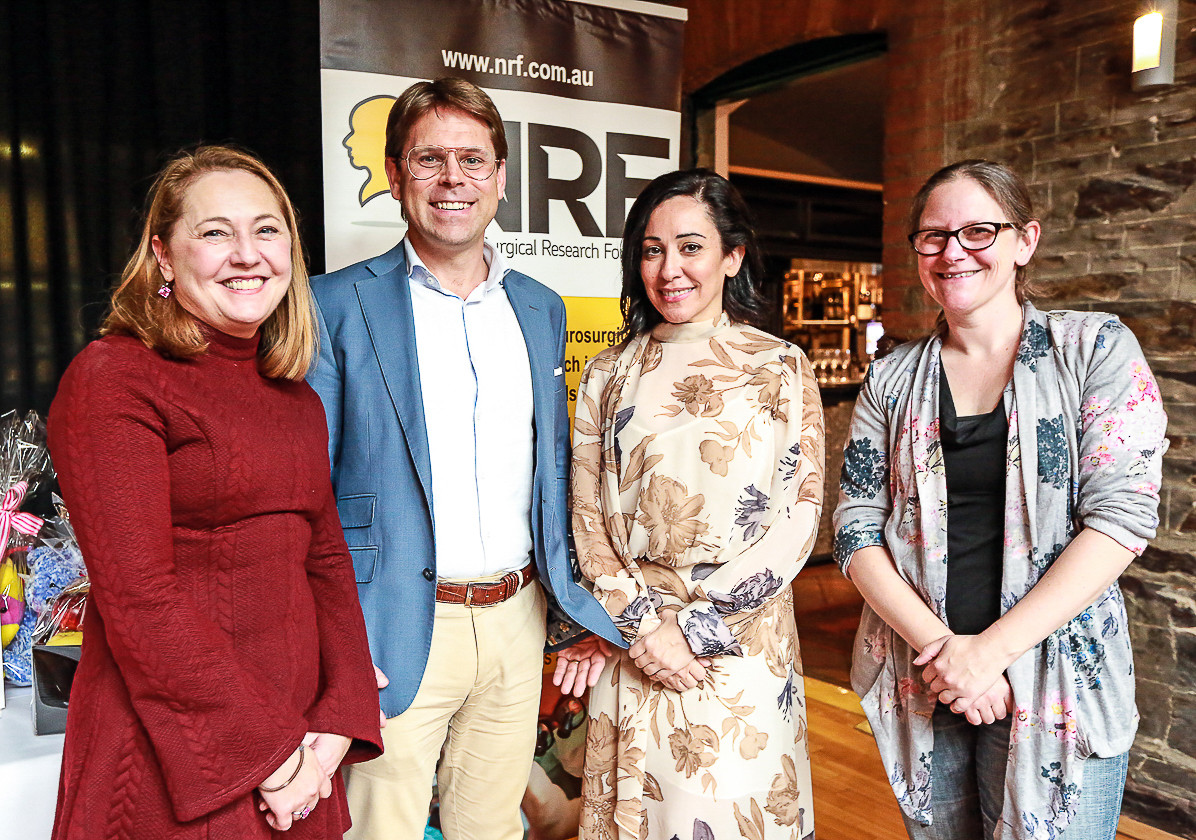
Here is her full interview with us:
1/ Why did you decide on a career as a Neurosurgeon?
I love solving the most challenging of problems but also love helping people and alleviate suffering, so I could combine both passions in a career in Neurosurgery. Whilst I was drawn to, and excelled at both sciences and humanities subjects and wanted to pursue a career in electronic engineering in my early school days, I found the circuit board of the human brain infinitely more interesting and fascinating with a lot known and understood but far more waiting to be discovered.
Being born and growing up in a war-torn country where I witnessed a lot of human suffering, I vowed to pursue a career where I can help alleviate human suffering and which I can combine with my passion for science, humanity and solving complex problems with authentic courage and compassion: 2 of my top guiding values in life.
2/ What fascinates you about Neurosurgery and what are your subspecialty areas?
The bigger the problem, the greater the job satisfaction in solving it. As a junior neurosurgical trainee in South Australia, where tremendous great quality neurosurgery was taking place, my mentors and I identified a need for subspecialising in complex vascular neurosurgery problems, with patients historically having to go interstate for some of the more complex vascular neurosurgical problems. This was also the case for epilepsy surgery, awake brain tumor surgery and intra-operative brain mapping. So, after completing my neurosurgical training in Adelaide and Melbourne in 2008, they helped me organise fellowship training in some of the most highly sought after fellowships in these areas: From 2008 to 2010, I completed 3 post-graduate fellowship training in epilepsy surgery in Melbourne and in vascular and paediatric Neurosurgery in Toronto, Canada. Since my return to Adelaide, I have been privileged to be able to provide world class surgical care in all these areas, as well as a number of both state first and country first surgical techniques alongside establishing robust multidisciplinary programs, fellowship and clinical research programs.
3/ What do you find the most rewarding about being a Neurosurgeon?
There is no question that my patients drive me and motivate me, to keep learning, discovering and striving for the best possible care to help them with the most challenging of problems. The surgery and clinical interactions are what I enjoy the most as well as our clinical multi D meetings where the brain trusts come together weekly to discuss patient cases be it brain tumor management, epilepsy surgery or challenging cerebrovascular problems. Teaching and mentoring the neurosurgical trainees, students and junior doctors and fellows whom come to train with us from around the world is also extremely rewarding. I get great joy mentoring students and junior doctors to get on to the neurosurgical training program and then helping them get through their final fellowship exams and qualify as neurosurgical colleagues. Just as rewarding is supervising and mentoring junior staff and students through their post-graduate degrees in neurosurgical research. Happiness is teaching and mentoring the juniors from early student days through their training to then excel in their chosen careers.
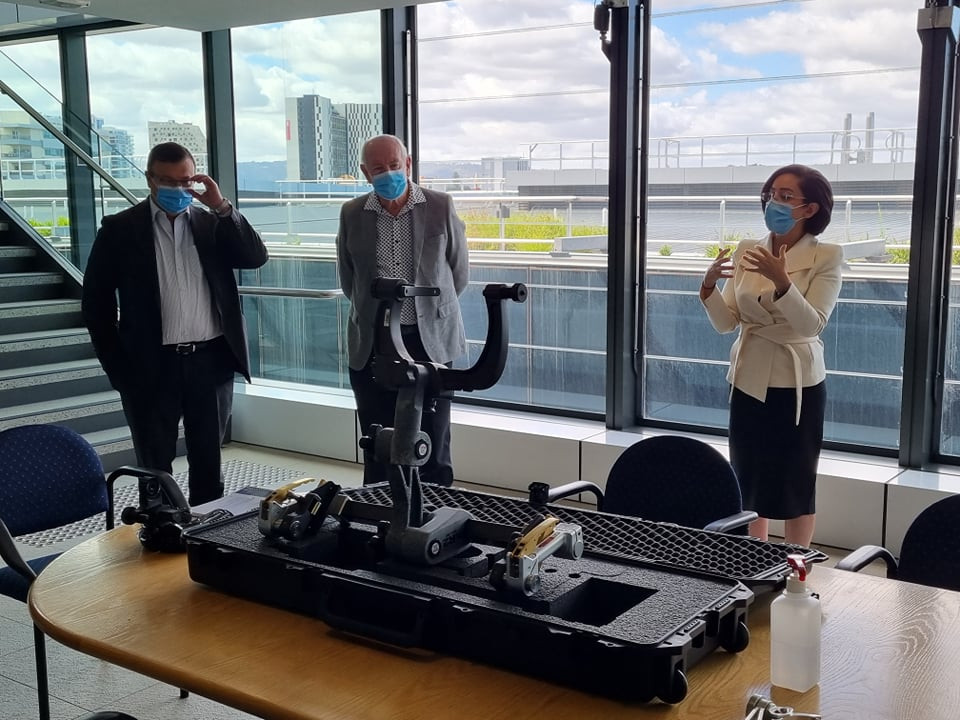
4/ What barriers or challenges have you faced in your career and how did you overcome them?
There is no denying that there is still room for improvement in the work culture in our health care system. A positive, inclusive, respectful culture where all staff feel psychological safety to do their best, leads to better patient outcomes. It is everyone’s responsibility and as surgeons, we need to lead by example. To me, failure is to let challenges change you for the worse and put out the fire in your belly to make the world better place.
5/ Have you had any role models or mentors that have inspired you throughout your career?
My neurosurgical career would not have been possible if it weren’t for all the great neurosurgeons and mentors who inspired, encouraged and supported my career path.
I have been blessed with many role models and mentors from a very young age starting in Adelaide where I did my medical schooling and early neurosurgical training. They were all very encouraging and supportive; In particular Drs Peter Oatey, Nigel Jones, Peter Reilly and Brian Brophy had a big role in my career choice from my early medical school days. As the first female neurosurgeon in South Australia, Dr Cindy Molloy, showed it was possible to successfully combine a neurosurgical career with a family. Professor Peter Blumbergs, was instrumental in introducing me to critical thinking in basic and clinical research through my Honors year. I had the privilege of working with one of the fathers of Neurosurgery in South Australia and co-founder of the NRF, Professor Donald Simpson, who well after his retirement continued to be active in research and attending clinical meetings always challenging us to delve deep into the mechanisms of neurosurgical disease. His dedication to paediatric patients, in particular, was awe-inspiring and it meant a lot to me that such a legendary figure in World neurosurgery was so encouraging of my neurosurgical and research career. My international connections through my fellowships overseas meant that I also had the privilege of incredibly inspiring mentors and role models through my fellowship supervisors in Canada (both at the Sick Kids and Toronto Western Hospitals)
6/ What is a typical day in your life like?
It really varies every day but typically my work day starts with morning ward rounds followed by either surgery or a clinic or both. There are at least 2 or 3 MDT meetings per week that I am either chairing or participating in. Academic meetings are also at least weekly occurrences as well as registrar teaching and ward rounds early Saturday mornings. With emergencies, the day can turn out very differently to what you had planned. At least 2 to 3 evenings per week would have a surgical board or committee meeting; clinical trials leadership meeting or other research meetings. As a co-PI on clinical trials, there are regular meetings, usually early morning, training the various sites and Investigator meetings. Regardless of how full the day is, we always try to make time to sit down for a coffee with the team at the RAH or the WCH.
7/ The theme for International Women's Day 2023 is Embrace Equity, what do you think can be done to increase equity in surgery, which is still a male-dominated specialty?
There is plenty of evidence that a diverse workplace with a good culture is a safer workplace and achieves better outcomes for patients.
I am honored to have been appointed as the convenor of the RACS Annual Scientific Congress in Adelaide in May this year which brings together thousands of surgical fellows of all specialties from Australia and New Zealand and in fact, I am proud of this theme that we chose for it this Congress this year: Equity. That’s equity in access to high quality surgical care and surgical training regardless of gender, age, race, region, ethnicity, sexuality, geography or migration status. So we will have a week-long conference discussing what has been achieved so far and what we need to strive for to achieve this equity in surgery.
I am also the South Australian representative of the Neurosurgical Education and training board of RACS (the Royal Australasian College of Surgeons) and there is a lot of work being done to help overcome the barriers to meritorious women choosing and pursuing a career in surgery. The neurosurgical board has been leading in this area.
8/ What advice would you give to any young person contemplating a surgical career?
Surgery remains one of the most rewarding and fulfilling careers one can pursue. I truly believe any medical graduate, regardless of their gender, race and background, can achieve a successful career in surgery if they have the passion, stamina, discipline and dedication. Challenge respectfully, keep your humility and remember: no one cares how much you know, until they know how much you care; so be kind, always.. it is in fact the best display of strength not a sign of weakness.
9/ If you could have dinner with three inspirational women, who would they be and why?
I am surrounded by inspirational and phenomenal women whom I am proud and blessed to call friends, family, colleagues and my heroes- in Adelaide, interstate and around the world really. So right now, making more time for dinners with them would fill me with as much joy and energy as meeting or dining with the most accomplished prime minister or rockstar in the world! I am overdue for my turn to host a dinner with a number of them and they all know who they are..
In addition to making time to have more dinners with the inspirational women and heroes in my circles, a little further afield, I am looking forward to meeting and hopefully having dinner with the incredible Amal Clooney (Nee Alamuddin) later this year- I greatly admire her work and share her passion for justice, human rights and her authentic courage, while still rocking the red carpet! We also happen to share a birth city and decade! I would love to have a tête-à-tête with Dr Angela Merkel, a visionary politician and scientist: I admire her authenticity, integrity, competence and pragmatism in times of crisis..




